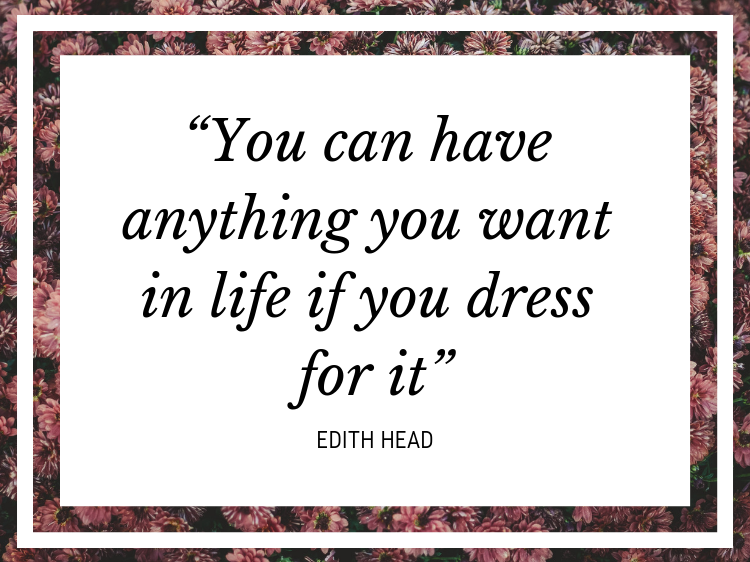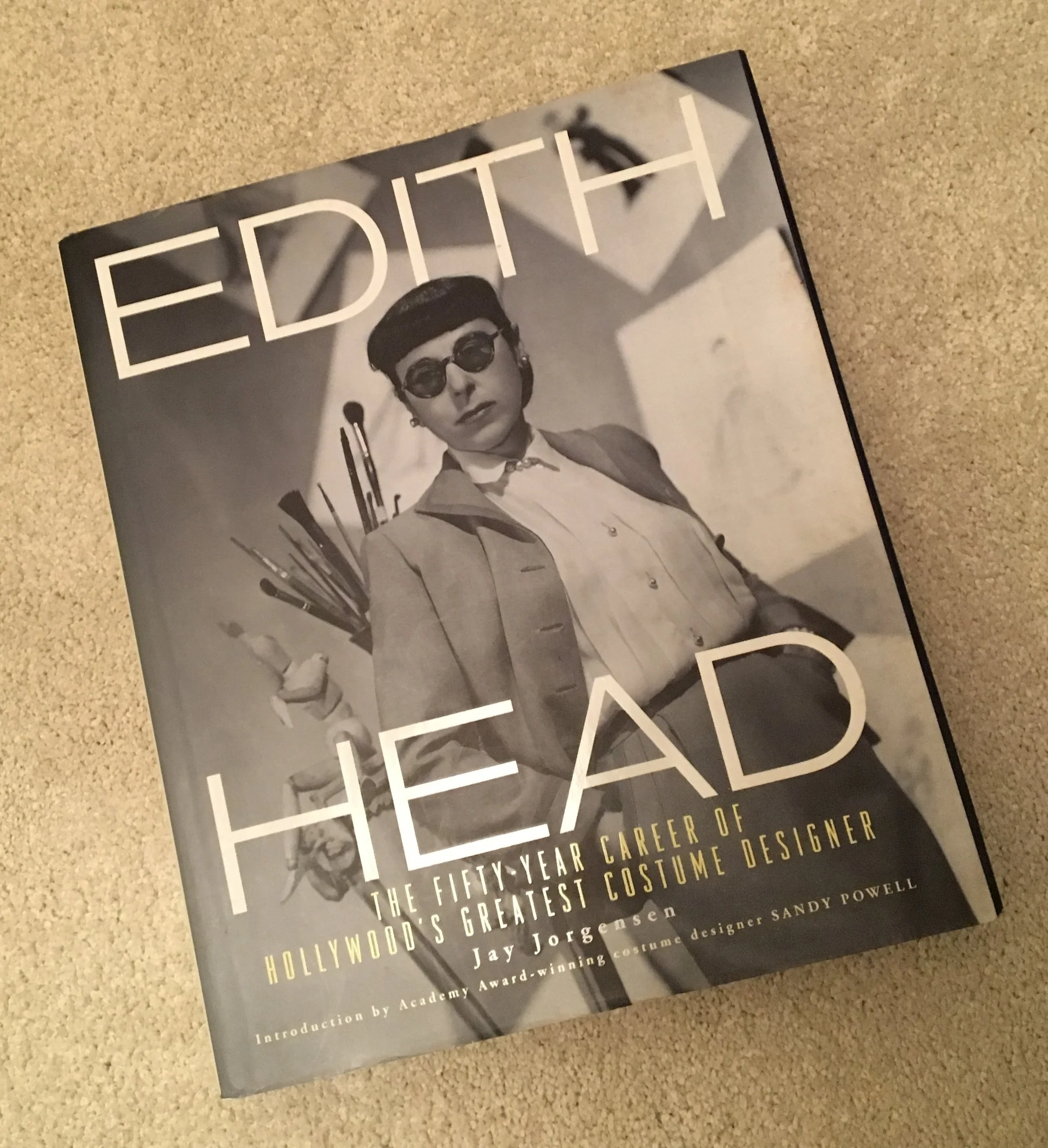Unconventional Mentor no. 26 - Edith Head
“You can have anything you want in life if you dress for it”
Quote: “You can have anything you want in life if you dress for it” - Edith Head
If you are a fan of classic Hollywood cinema then you have probably seen the work of the costume designer Edith Head on the silver screen. I know her work from the Hitchcock movies she worked on, as well as All About Eve, Breakfast at Tiffany’s and Funny Face, amongst many others. She was nominated for 35 Academy Awards, and won 8, which is the most for any costume designer. Her first award was for All About Eve in 1950 and her last win in 1973 for The Sting, and she continued to receive nominations right up until 1977, just 4 years before her death. She was working right up until her death in 1981, and she even made a cameo appearance in an episode of Columbo with Anne Baxter.
“What we do is a cross between magic and camouflage”
The work of a costume designer is an unusual one. The clothes help to tell a story and for the audience to imagine that the very well-known actor playing a part is no longer themselves, but the character they are portraying. A costume not only tells you something about the time in which the film is set, but it can be an extension of the character and tell as much of the story as the actors do. So, whilst the job of the costume designer is to provide people with amazing outfits, it is also about being part of the whole team that makes the film, so that the costume neither stands out too much or you don’t notice it at all.
Edith Head biography by Jay Jorgensen
I have a wonderful biography of Edith Head by Jay Jorgensen, that is filled with pictures, not only of the costumes she designed and the actors who wore them, but also of her at her work and in her own publicity shots. Early photos of her show her to be a little plain, but with a very striking blunt fringe. I suppose it is rather hard to look anything but plain when you are next to some of Hollywood’s beautiful leading ladies. In the early days of film making she used to wear dark glasses so that she could see what her costumes would look like in black and white, but as colour became the norm, she retained her trademark look and it is probably this image of Edith Head that you will think of when you hear her name. You can even buy a pin badge of her and this iconic look.
“Your dresses should be tight enough to show you're a woman and loose enough to show you're a lady.”
Edith wasn’t always just behind the cameras. In 1951 Paramount made a film called The Costume Designer that showcased Edith’s creative process and she also had many TV appearances and radio pieces too. She very much became a household name and was known for her witty remarks like the one above. Her work is still very much valued today, a sketch of that amazing little black dress that Audrey Hepburn wore in Breakfast At Tiffany’s was sold by Christie’s for £22,500 in 2011.
“Building a proper wardrobe is like building a home. Indeed, you should think of it like a home, because it is something, you're going to live in. It must be comfortable and suit all your needs.”
Researching Edith Head for this piece and reading her biography again has really inspired me to explore my own relationship with clothes. I have never loved fashion or been passionate about the clothes I wear, but that is more to do with my own self esteem rather than not being interested in it. I have loved seeing the costumes that Edith Head and many others have produced for the big screen and how they can change the impression you have of a person. One of the challenges that feminism faces, and this has definitely been a part of my own relationship with clothes amongst other things, is that being interested in fashion is somehow at odds with being a feminist. If I am interested in clothes, fashion and my appearance, does that mean that I am not serious about other issues? Fashion is often seen as frivolous, which I think is just another way to criticise the work that is mostly done or enjoyed by women. Fashion is a huge part of the economy, and every fashion brand is a business. According to the British Fashion Council the UK fashion business is worth £32 billion which is not frivolous at all. Why should these businesses be taken less seriously or deemed less important than any other? Edith Head showed the importance of clothes in the making of films and she made a career out of them, so why shouldn’t I enjoy them?
Mentor advice: Dress for the part you want to play in life
The advice that I take from Edith Head is to dress for the part you want to play in life. I love the idea that you can imagine the life you want for yourself and start to make that happen by the clothes that you wear. Because clothes aren’t just clothes, you are thinking of the attributes you have that you want to tell other people about and you can use your choice of outfit to do that. By focusing on the attributes you want to show people, you will believe in yourself more and develop them even further. The outfits that we chose to wear say something about us. A bold jacket and bright lipstick are something that confident women wear. An arty tunic and a large chunky necklace show off your creativity. It’s not just picking out a good outfit but dedicating time to how you want to be at work and using the way that you dress to start to behave that way. How can you use the clothes that you wear for work to help you to define who you want to be?
To find out more about Edith Head have a look at this video from Made 2 Measure that looks back at her career.

